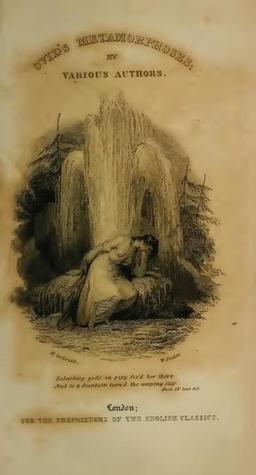More on this book
Community
Kindle Notes & Highlights
In addition to whatever else it might be, the Metamorphoses is an encyclopaedia of myth:
The main connecting thread is an interest in identity: what is it about a person that makes them that person, and what is it about humans that makes them human?
Ovid works throughout to animate the question of who we think we are, and how we think about who we think we are.
his ability to take us into the mind of aberrant compulsion is profoundly disturbing.
Thus clay, so lately no more than a crude and formless substance, was metamorphosed to assume the strange new figure of Man.
‘Help me, Father!’ she pleaded. ‘If rivers have power over nature, mar the beauty which made me admired too well, by changing my form!’ She had hardly ended her prayer when a heavy numbness came over her body; her soft white bosom was ringed in a layer [550] of bark, her hair was turned into foliage, her arms into branches.
never forget the ancient saying: ‘Wait for the final day. Call no man happy until he is dead and his body is laid to rest in the grave.’
All I desire I have. My wealth has left me a pauper.
Narcissus faded [490] away and melted, slowly consumed by the fire inside him.
As all the rivers on earth flow into the sea, so Hades admits every soul that arrives;
suffering sharpens the wits and misfortune makes one resourceful.
the shame of losing the battle was less than the glory of fighting it
Warnings, however, are never heeded by courage.
only a poor man counts his sheep.
the bridge which leads from youth to old age,
“Our bodies also are constantly changing and never at rest; [215] what we were once and we are today, we shall not be tomorrow.
Time, the universal devourer, and spiteful decay, [235] there is nothing you cannot destroy. You close your envenomed jaws and little by little consume all things in a lingering death!
“Nothing retains its original form,
Nothing at all in the world can perish, you have to believe me; [255] things merely vary and change their appearance.
Now that the dawn had banished the fiery stars from the heavens,


